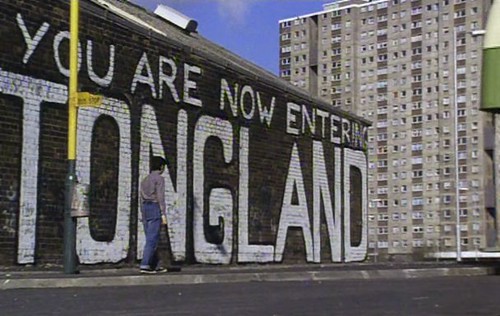Writer: Spike Lee
AFI Rank: - (1998) 96 (2007)
BFI Rank: -




In terms of critical acclaim it is hard to argue with the facts. As well as occupying position 96 on the AFI Top 100 10th Anniversary list, it holds places on Variety's 50 best of all time, Entertainment Weekly's 100 Greatest Movies Of All Time, Film Four's 100 Greatest Films Of All Time, The National Society Of Film Critics 100 Essential Films, Empire's 500 Greatest Movies Of All Time and the list goes on. Siskel and Ebert ranked it as one of the top 10 films of the decade. The US Library of Congress even chose it for preservation in the National Film Registry. You might be surprised then to learn that I didn't particularly enjoy it.
Do The Right Thing is unquestionably an important movie. It delivers its message unbelievably well, a difficult thing to do if you consider not only the subject but the time it was made. For that alone it deserves the acclaim. The writing and reciting by Lee are both superb. The cast stellar (John Turturro, Danny Aiello and Ossie Davis especially). Similar to many british movies on the BFI list, it is culturally and historically significant. It perfectly captures not only a time and place but also the emotions and sentiments. Don't get me wrong. This is not uncomfortable to watch like many other movies of this genre. As a viewer I just felt like I was along for the ride and never truly got pulled in by the characters or the story. Many of the most interesting characters are played by veteran actors and that may point to my problem with the film. Many of the fresh young actors would go on to do incredible things but here it feels like they are just warming up. For me at least it was enough to keep me from getting completely engaged.
I watched both the DVD and also parts of the Netflix HD stream. The DVD retains the overly saturated and yellow tinged cinematography of the original film which adds to the sense of oppressive heat. The Blu ray has apparently lost this in favor of crisp lifelike color and the Netflix stream did seem a little less yellow to me. Take your pick.
Should you see it? Absolutely. There is a key question posed that is central to the film and, without spoiling the plot, is incredibly powerful. It will linger with you for a while. Certainly less than it would have 20 years ago, but critical all the same. For me personally I think that with repeated viewing I might come to love this movie, not having gone in with any nostalgic memories of seeing it in the nineties.












